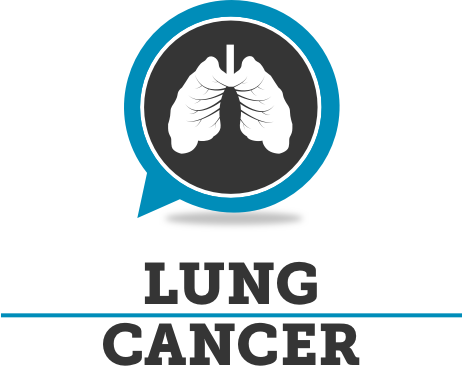
Of all cancers, lung cancer kills more men and women than any other cancer in Ireland.
Nearly 1,505 men are diagnosed with lung cancer in Ireland each year, and unfortunately, around 1,050 men die from the disease.
What is lung cancer?
Lung cancer occurs when abnormal cells cluster together in the lungs and form a tumour. The tumour destroys healthy lung tissue. About 90% of lung cancers are caused as a direct result of smoking.
If detected early, the tumour can usually be removed. However lung cancer is very hard to detect and most people have no symptoms at all until the advanced stages, by which time the cancer has spread (metastasized) to other parts of the body. Because of this, survival rates for lung cancer are quite low.
What are the signs and symptoms of lung cancer?
Lung cancer doesn’t display many symptoms in its early stages. But once the cancer develops, it will start to affect the lungs, and the signs and symptoms may include:
- A persistent, worsening cough
- Coughing up excessive phlegm with blood
- Chest pain with coughing or breathing
- Recurring chest infections
- Weight loss
 Who gets lung cancer?
Who gets lung cancer?
- Most lung cancers (90%) are due to smoking. The risk of getting lung cancer is directly linked to the number of cigarettes you smoke every day and the years you spend smoking.
- Your chances of developing lung cancer increase with age. The majority of people who get lung cancer are over the age of 50.
- Some people also develop lung cancer from being exposed to substances like asbestos, air pollution or coal gas.
- In a small minority of cases, the cause is unknown.
The good news for ex-smokers is that your risk of developing lung cancer decreases the longer you stay smoke free. If you are a smoker, try to quit. You can get free help from the HSE QUIT team- visit www.quit.ie, FREEPHONE 1800 201 203 or FREETEXT QUIT TO 50100.
How can I reduce my risk of lung cancer?
Not smoking is by far the most important thing anyone can do to lower their risk of developing lung cancer. If you smoke, quit now. You can get free help from the HSE QUIT team- visit www.quit.ie, FREEPHONE 1800 201 203 or FREETEXT QUIT TO 50100.
Some other steps that you can take include:
- Be aware of occupational causes and take appropriate precautions
- Avoid second-hand smoke
- Exercise
- Eat a healthy diet
What should I do if I think I have lung cancer?
If you notice any of the symptoms listed above, go and talk to your GP straight away. The earlier cancer is diagnosed, the better.
What will my GP do if they think I have lung cancer?
If your GP suspects you have lung cancer, you might be sent to have a chest x-ray, and have a phlegm sample taken to test for cancer cells. Sometimes tumours in the lung are too small to see on X-rays so, depending on the results, your doctor may refer you to have a CT scan to have a better look at your lungs.
If a tumour is detected in your lungs, your doctor will recommend a biopsy which will involve taking a tiny sample of tissue from the tumour and testing it for cancer cells. This is done either by putting a thin needle through your chest into the tumour, or by inserting a tube down your throat (bronchoscopy) under local anaesthetic.
Treatment options
If the lung cancer is still in its early stages and it hasn’t spread to other parts of the body, you might be able to have surgery to remove a section of the affected lung, or a whole lung.
If the lung cancer is more advanced and has spread, your doctor might recommend chemotherapy or radiotherapy.
Unfortunately, compared to other types of cancer, lung cancer has a very low survival rate.
The Marie Keating Foundation’s Get Men Talking campaign is proudly supported by:
![]()

